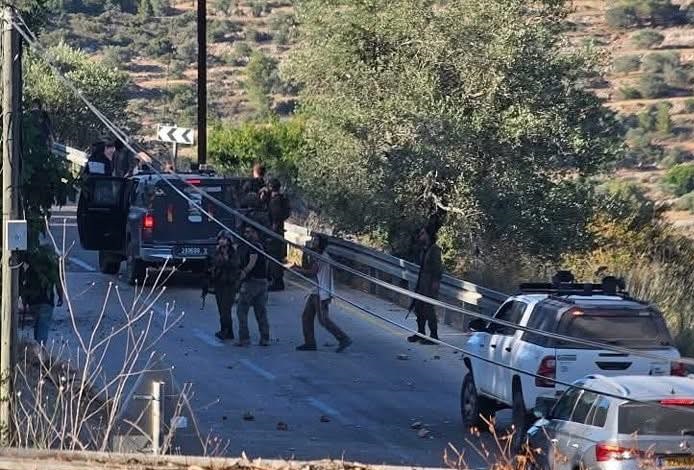By Al-Hareth al-Hussni
TUBAS, November 7, 2016 (WAFA) – Palestinians from the northern Jordan Valley spend their day as if nothing is happening around them. They return home in the afternoon after their sheep finish herding. At night they hear sounds beyond the hilltops.
The story began two months ago when Israeli settlers set up a shed outside the settlements of Rohi and Khimdat and left it there. A few days later, the settlers returned to the shed, leveled the land and started to build on it.
Palestinian Bedouins from Khallat Hamad area heard strange sounds from a distance of 500 meters. In the morning, they found that a settler from nearby Sal’it settlement had set up a caravan with a fence in its vicinity under the pretext that he was intending to graze sheep.
Hassan Abu Zahou, a resident of al-Hamma area in the Jordan Valley, said, “At night they work silently, but we can notice the lights of their cars and their voice. But in the morning, we are shocked to find a shed or a caravan built on the land.”
Although the Israeli military coordination office considered this kind of construction as illegal, this has not put an end to overnight construction by Israeli settlers.
The voice that is heard at night near Khallat Hamad area is almost the same that is heard in al-Beqeia area in the Jordan Valley.
Families living there said that two months ago settlers erected a shed in the middle of the night before they came there again and started to level the area ahead of an impending construction of residential structures.
Aref Daraghmeh, who monitors settlement activities in the Jordan Valley, said that during a period of two months Israeli settlers have confiscated more than 200 dunums of land, on which they set up caravans and sheds.
Daraghmeh warned about the potential consequences of illegal Israeli construction in the area, saying it could put thousands of Palestinian-owned dunums of land at risk since such construction would divide the area.
One who visits the area can closely notice signs of new settlement outposts being erected in the Jordan Valley. For instance, you can see a caravan set up on a hilltop outside Rotem settlement. When you make it to the north, you can see a few structures adjacent to the settlement of Mehola, the first agricultural settlement to be established by Israel after its occupation of the West Bank in 1967.
Also in Rotem, one can notice the massive construction and expansion of the settlement, including new residencies and livestock barns.
Daraghmeh adds that Israel’s “civil administration” deals with the local residents and human rights organization that monitor settler violations through a policy of sedation by keeping them busy with issues such as demolition of homes in the Jordan Valley, and this is what has been happing in the area lately.
The policy of building sheds at night is part of efforts to create new facts on the ground, which he said was to quiet down protests by human rights groups against illegal construction in the area.
M.N./M.A.










